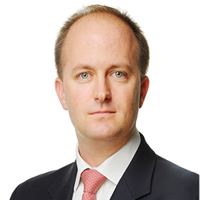Capital at risk. The value of investments and the income from them can fall as well as rise and are not guaranteed. Investors may not get back the amount originally invested.
Blackrock Greater Europe Investment Trust plc
The Blackrock Greater Europe Investment Trust aims to provide capital growth by investing in a focused portfolio of European companies.
Home to some of the world’s most dynamic and exciting businesses, Europe can often surprise for its innovation and depth of opportunity.
The trust’s experienced managers, Stefan Gries and Alexandra Dangoor, are keenly focused on quality with a bottom up approach.
This means they look for companies that are financially strong, with good management and an excellent track record of creating value for shareholders.
They also look for something unique from their businesses, such as a strong brand or a particularly desirable product.
They can invest across the whole breadth of Europe and are not constrained by company size, sector or region.
This allows the team to capture growth opportunities in the less well known, potentially faster growing parts of emerging Europe, as well as mainstream economies such as Switzerland, France and Germany.
The portfolio managers aim for a high conviction portfolio of 30 to 45 of the most compelling of these businesses, which can be held for the long term.
Subscribe to receive regular updates on the progress of this trust.
[FINAL SLIDE]
Greater Europe
USP
Capturing a greater opportunity in Europe by investing across the entire continent, without constraint.
Key differentiators
1. Looks to capture opportunities in emerging Europe as well as its larger, mature economies(1)
2. Focuses on quality businesses with something unique, such as a strong brand or a particularly desirable product(2)
3. Fully leverages the benefits of Blackrock’s scale with deep analytical capabilities, a global footprint and excellent access to company management(3)
[ENDS]
Marketing material
Risk Warnings
Investors should refer to the prospectus or offering documentation for the funds full list of risks.
Capital at risk. The value of investments and the income from them can fall as well as rise and are not guaranteed. Investors may not get back the amount originally invested.
Past performance is not a reliable indicator of current or future results and should not be the sole factor of consideration when selecting a product or strategy.
Changes in the rates of exchange between currencies may cause the value of investments to diminish or increase. Fluctuation may be particularly marked in the case of a higher volatility fund and the value of an investment may fall suddenly and substantially. Levels and basis of taxation may change from time to time.
Fund-specific risks
BlackRock Greater Europe Investment Trust plc
Counterparty Risk, Currency Risk, Emerging Markets, Gearing Risk, Liquidity Risk
Description of Fund Risks
Counterparty Risk
The insolvency of any institutions providing services such as safekeeping of assets or acting as counterparty to derivatives or other instruments, may expose the Fund to financial loss.
Currency Risk
The Fund invests in other currencies. Changes in exchange rates will therefore affect the value of the investment.
Emerging Markets
Emerging markets are generally more sensitive to economic and political conditions than developed markets. Other factors include greater 'Liquidity Risk', restrictions on investment or transfer of assets and failed/delayed delivery of securities or payments to the Fund.
Gearing Risk
Investment strategies, such as borrowing, used by the Trust can result in even larger losses suffered when the value of the underlying investments fall.
Liquidity Risk
The Fund's investments may have low liquidity which often causes the value of these investments to be less predictable. In extreme cases, the Fund may not be able to realise the investment at the latest market price or at a price considered fair.
Important Information
In the UK: this is issued by BlackRock Investment Management (UK) Limited, authorised and regulated by the Financial Conduct Authority. Registered office: 12 Throgmorton Avenue, London, EC2N 2DL. Tel: + 44 (0)20 7743 3000. Registered in England and Wales No. 02020394. For your protection telephone calls are usually recorded. Please refer to the Financial Conduct Authority website for a list of authorised activities conducted by BlackRock.
UK Investment Trust Funds: This document is marketing material. The Company is managed by BlackRock Fund Managers Limited (BFM) as the AIFM. BFM has delegated certain investment management and other ancillary services to BlackRock Investment Management (UK) Limited. The Company’s shares are traded on the London Stock Exchange and dealing may only be through a member of the Exchange. The Company will not invest more than 15% of its gross assets in other listed investment trusts. SEDOL™ is a trademark of the London Stock Exchange plc and is used under licence.
Net Asset Value (NAV) performance is not the same as share price performance, and shareholders may realise returns that are lower or higher than NAV performance.
The investment trusts listed above currently conduct their affairs so that their securities can be recommended by IFAs to ordinary retail investors in accordance with the Financial Conduct Authority’s rules in relation to nonmainstream investment products and intend to continue to do so for the foreseeable future. The securities are excluded from the Financial Conduct Authority’s restrictions which apply to non-mainstream investment products because they are securities issued by investment trusts. Investors should understand all characteristics of the funds objective before investing. For information on investor rights and how to raise complaints please go to https://www.blackrock.com/corporate/compliance/investor-right available in local language in registered jurisdictions.
BlackRock has not considered the suitability of this investment against your individual needs and risk tolerance. To ensure you understand whether our product is suitable, please read the fund specific risks in the Key Investor Document (KID) which gives more information about the risk profile of the investment. The KID and other documentation are available on the relevant product pages at www.blackrock.co.uk/its. We recommend you seek independent professional advice prior to investing.
Any research in this document has been procured and may have been acted on by BlackRock for its own purpose. The results of such research are being made available only incidentally. The views expressed do not constitute investment or any other advice and are subject to change. They do not necessarily reflect the views of any company in the BlackRock Group or any part thereof and no assurances are made as to their accuracy.
This document is for information purposes only and does not constitute an offer or invitation to anyone to invest in any BlackRock funds and has not been prepared in connection with any such offer.
© 2024 BlackRock, Inc. All Rights reserved. BLACKROCK, BLACKROCK SOLUTIONS and iSHARES are trademarks of BlackRock, Inc. or its subsidiaries in the United States and elsewhere. All other trademarks are those of their respective owners.
(1)Source: https://www.blackrock.com/uk/solutions/investment-trusts/our-range/blackrock-greater-europe-investment-trust/trust-information – 0m 33s to 0m 43s
(2)Source: https://www.blackrock.com/uk/solutions/investment-trusts/our-range/blackrock-greater-europe-investment-trust/trust-information – 1m 45s to 3m 01s
(3)Source: https://www.blackrock.com/uk/solutions/investment-trusts/our-range/blackrock-greater-europe-investment-trust/trust-information – 4m 13s to 5m 07s, 1m 24s to 1m 44s
MKTGH0725E/S-4648331
About this trust
The Company aims to provide capital growth by investing in a portfolio of large, mid, and small-cap European companies, including some in developing markets. It targets high-quality, well-capitalized companies with strong management. Ideal for investors targeting Europe's high-growth companies and willing to accept risk for long-term returns.
There is no guarantee that a positive investment outcome will be achieved.
Portfolio Managers & Board of Directors
The Trust is governed by an elected Board of Directors
The annual report gives investors a clear overview of the company's financial performance, including detailed revenue and profit analyses. It features the Chairman's statement, providing insights into the company's direction, and the Portfolio Manager's report, which details investment strategies and portfolio performance.

The half-year report updates investors on the company's financial performance, including key revenue and profit metrics. It includes a brief statement from the Chairman, offering insights into the company's progress and strategic direction for the first six months. Additionally, the Portfolio Manager's summary highlights investment strategies.

The factsheet provides an overview of the company's objective and strategy, including a monthly update of the company's performance. It highlights the portfolio's sector allocation and top 10 holdings, along with the portfolio managers' monthly commentary.
Useful information
Capital at risk. The value of investments and the income from them can fall as well as rise and are not guaranteed. Investors may not get back the amount originally invested.
Fees & Charges
Annual Expenses as at Date: 31/08/2025
Ongoing Charge: 0.95%
Management Fee Summary: With effect from 1 September 2025, the management fee was reduced from 0.85% of net assets up to £350 million and 0.75% on the remainder to a lower tiered rate structure of 0.65% on the first £400 million, 0.60% on net assets between £400 million and £1 billion and 0.525% on the remainder. This is not reflected in the Ongoing Charges above of 0.95%, and it is estimated that the Company’s Ongoing Charges will reduce significantly, allowing it to achieve an illustrative OCR of 0.775% (based on average net assets for the year ended 31 August 2025 of £593.3).
-
ISIN: GB00B01RDH75
Sedol: B01RDH7
Bloomberg: BRGE LN
Reuters: BRGE.L
LSE code: BRGE
-
Name of Company: BlackRock Fund Managers Limited
Telephone: 020 7743 3000
Email: cosec@blackrock.com
Website: www.blackrock.com/uk
Correspondence Address: Investor Services,
BlackRock Investment Management (UK) Limited,
12 Throgmorton Avenue,
London
EC2N 2DL
Name of Registrar: Computershare PLC
Registered Office: 12 Throgmorton Avenue,
London
EC2N 2DL
Registrar Telephone: +44 (0)370 707 1163
Place of Registration: England
Registered Number: 5142459
-
Year End: 31 August
Results Announced: April (half yearly), October (final)
AGM: November/December
Dividends Paid: May (interim), December (annual)
ESG Integration
The fund noted above does not commit to sustainable criteria nor does it have a sustainable investment objective.
BlackRock considers many investment risks in our processes. In order to seek the best risk-adjusted returns for our clients, we manage material risks and opportunities that could impact portfolios, including financially material Environmental, Social and/or Governance (ESG) data or information, where available. See our Firm Wide ESG Integration Statement for more information on this approach and fund documentation for how these material risks are considered within this product, where applicable.
Latest company announcements
Capital at risk. The value of investments and the income from them can fall as well as rise and are not guaranteed. Investors may not get back the amount originally invested.
Filter by type:
Filter by date period:
Sign up for Regulatory News Service alerts
To receive email alert notifications once an update to the Trust occurs, please sign up and select the updates you would like to receive via The Association of Investment Companies website here. Please be aware by clicking on this link you are leaving BlackRock and entering a third party’s website. As such, BlackRock is not liable for its content.
Portfolio manager biography
Stefan Gries is co-manager of BlackRock Greater Europe Investment Trust plc. He is Co-Head of the European Equity team within BlackRock’s Fundamental Equity Group. He co-manages the Pan European and Continental Europe ex-UK strategies, as well as the European Absolute return (long/short) portfolios. Prior to joining Blackrock in 2008, Stefan spent 2 years at Scottish Widows Investment Partnership where he completed a 2-year graduate program. Since joining BlackRock, he has worked both as a Portfolio Manager and as a Research Analyst covering, at various times, Energy, Pharmaceuticals and Insurance on behalf of the European Equity team. Stefan earned an MA in Economics & Spanish from the University of St. Andrews in 2005.
Brian Hall is co-manager of BlackRock Greater Europe Investment Trust plc. He is a member of the European Equity team within BlackRock’s Fundamental Equity Group. He co-manages the European Value and European Income portfolios. Prior to joining BlackRock in 2007, Brian was with Lehman Brothers, where he was a Director responsible for Equity Research on the European Capital Goods team. He began his career with Lehman in 1999. Brian earned a BSc. degree, first class honours in Economics with study in Continental Europe from Bristol University in 1999.
Board of directors
All the Directors are non-executive and independent of the Investment Manager. The Board as a whole constitutes the Audit and Management Engagement Committee.
Andrew Impey (appointed 28 April 2025) (Chairman) has over 30 years’ fund management experience and more than 35 years’ investment trust experience. He has been lead manager on a broad range of funds including a sovereign wealth mandate, unit trusts and several investment trusts. He was previously a consultant at Rathbones Investment Management, a partner of Albion Capital Group LLP and joint managing director at OLIM Limited. Prior to joining OLIM in 2009, he was chief investment officer at Singer & Friedlander Investment Management. He is non-executive chair of the Pacific Assets Trust plc.
Peter Baxter (appointed April 2015) has over 30 years’ experience in the investment management industry. He is an executive director of Snowball Impact Management Ltd, a social impact investment organisation, a non-executive director of Civitas Social Housing plc, and a trustee of Trust for London, and was a member of the Financial Reporting Council’s Conduct Committee. Previously he was chief executive of Old Mutual Asset Managers (UK) Ltd and worked for Schroders and Hill Samuel in a variety of investment roles.
Paola Subacchi (appointed July 2017) (Senior Independent Director) is an economist, writer and commentator on the functioning and governance of the international financial and monetary system. She is Professor of International Economics and Chair of the Advisory Board, Global Policy Institute, Queen Mary University of London, visiting professor at the University of Bologna, non-executive director of Scottish Mortgage Investment Trust PLC as well as Founder of Essential Economics Ltd. She writes regularly on Project Syndicate.
Ian Sayers (appointed February 2022) (Chairman of the Audit and Management Engagement Committee) is the former Chief Executive of the Association of Investment Companies (AIC), which he became in 2010 on his promotion from Deputy Director General. Prior to that, he was the AIC’s Technical Director, advising members on areas such as taxation, accounting, company law and regulation, as well as having a key role in its public affairs activity. He qualified as a chartered accountant and chartered tax advisor.
Sapna Shah (appointed 12 December 2023) has 20 years of investment banking experience advising UK companies, including listed REITs and investment companies, on IPOs, equity capital market transactions and mergers and acquisitions. She is a non-executive director of The Association of Investment Companies and a consultant at Panmure Gordon Limited. Prior to this she held senior investment banking roles at UBS AG, Oriel Securities (now Stifel Nicolaus Europe) and Cenkos Securities. She is currently a non-executive director of Supermarket Income REIT plc and BioPharma Credit PLC.
Latest insights

BRGE FAQs
-
The Company’s objective is the achievement of capital growth, primarily through investment in a focused portfolio constructed from a combination of the securities of large, mid and small capitalisation European companies. The Company is a concentrated, high conviction portfolio with a long investment horizon and can have up to 25% of its overall risk allocation from developing European stocks.
The Company is managed by Stefan Gries and Brian Hall, who are supported by BlackRock’s Fundamental European Equity team.
-
Stefan Gries and Brian Hall are co-managers of BlackRock Greater Europe Investment Trust.
Stefan is Head of the European Equity team in BlackRock’s Portfolio Management Group, with extensive experience managing various European portfolios. Stefan is also co-manager on the European Absolute return (long/short) portfolios, as well as on Pan-European and Europe ex-UK long-only portfolios.
Brian Hall is a member of the European Equity team within BlackRock’s Fundamental Equity Group. He co-manages the European Value and European Income portfolios.
-
Dividends from the BlackRock Greater Europe Investment Trust are declared and paid out semi-annually. Interim dividend payments are made in May with final dividend payments being made in December.
-
We believe there are reasons to be positive about European equities. Firstly, there’s valuation. We consider European stocks currently offer attractive value for investors looking to take advantage of the market fluctuations and tap into enduring trends.
Additionally, investing in European equities offers the potential benefit of targeting resilient companies with the aim to navigate inflation and economic slowdowns successfully. We seek mature, cash-generating companies with proven business models and strong financials across sectors, which may provide an attractive investment opportunity.
Europe hosts numerous top-tier companies, strategically positioned to support global governments in achieving their objectives. Themes like infrastructure, automation, and the shift to electric vehicles are well represented in the BlackRock Greater Europe portfolio, making European equities an attractive prospect for long-term returns amid evolving market conditions.
Equity risk: The value of equities and equity-related securities can be affected by daily stock market movements. Other influential factors include political, economic news, company earnings and significant corporate events.
-
The BlackRock Greater Europe Investment Trust provides a solution for investing in large, mid and small-cap European businesses. The Trust taps into Europe’s innovation and dynamic capitalism, actively seeking out its most promising companies. With a portfolio including global brand leaders and smaller firms focusing on niche, high-growth areas, the Trust aims to encompass high-quality and well-capitalised companies with strong management, aiming to create lasting shareholder value. The BlackRock Greater Europe Investment Trust is suited to investors seeking exposure to Europe’s top-quality, fast-growing companies, regardless of size or location, and to those willing to take on additional risk for long-term capital growth.
What are the risks?
Past performance is not a reliable indicator of future results and should not be the sole factor of consideration when selecting a product or strategy.
Capital at risk. The value of investments and the income from them can fall as well as rise and are not guaranteed. Investors may not get back the amount originally invested.
Counterparty Risk: The insolvency of any institutions providing services such as safekeeping of assets or acting as counterparty to derivatives or other instruments, may expose the Fund to financial loss.
Currency Risk: The Fund invests in other currencies. Changes in exchange rates will therefore affect the value of the investment.
Emerging Markets: Emerging markets are generally more sensitive to economic and political conditions than developed markets. Other factors include greater 'Liquidity Risk', restrictions on investment or transfer of assets and failed/delayed delivery of securities or payments to the Fund.
Gearing Risk: Investment strategies, such as borrowing, used by the Trust can result in even larger losses suffered when the value of the underlying investments fall.
Liquidity Risk: The Fund's investments may have low liquidity which often causes the value of these investments to be less predictable. In extreme cases, the Fund may not be able to realise the investment at the latest market price or at a price considered fair.






